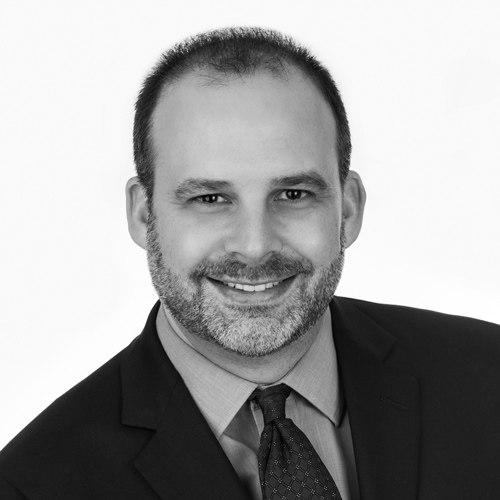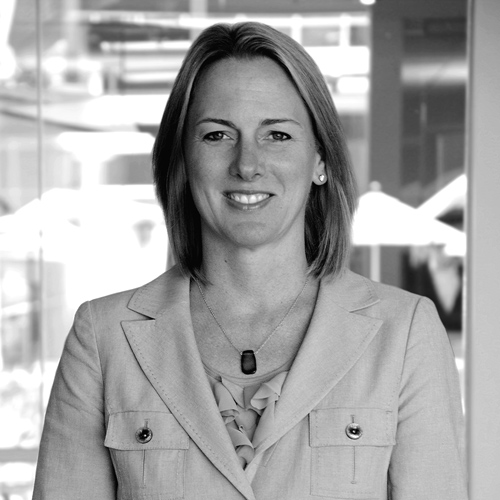What could worry a money service business’ litigation lawyer the most? When that company has thousands of retail locations in hundreds of countries, transacting business daily with a million or more people—some possibly with bad intentions—aren’t there more than a few things to be concerned about?
Of course there are. But Cory Feinberg doesn’t let these concerns prevent him from doing—and loving—his job. As associate general counsel at MoneyGram, he’s tasked with lawsuit defense—mostly from consumers—and sometimes as the plaintiff, such as in contract disputes with independent agents who operate the company’s 350,000 brick-and-mortar locations in 200 countries. The trick, he says, is to foster a risk-prevention culture.
“I do a lot of training, speaking to different groups in the company,” Feinberg says. He explains that educational sessions with different functioning groups within the company are all in the interest of prevention to minimize the litigation it faces when processes, procedures, and human error might fail the customer, or to meet the multitude of financial regulations facing the global company.
One example is when Feinberg encourages business units to have more meetings and fewer e-mail conversations. This makes sense, seeing as in an era of rampant cyberattacks, it’s easy for any individual to make a statement that could later prove to be incriminating. It’s always better that the issue at hand be discussed and resolved in person.
Feinberg explains that these training sessions (some past ones include “Top Ten Ways to Mitigate Risk” and “What is Privileged Information?”) are about more than increasing skills and preventing future mistakes and litigation. The sessions are also a way for Feinberg, who joined the company in January 2015, to get to know people in the company better.
“I touch all lines of the business,” he says. “I don’t support any one division, but all of them. I really try to know everyone in the company.”
That’s not such a bad idea, given the threats the company faces from various criminal elements, including terrorists. After all, it’s been famously said that, to know who did what, when, and why, one merely has to “follow the money.” Money service businesses are a place where investigators can do just that.
The crimes come in many forms. E-mail scams of every type abound the world over, and victims are often coerced into sending currency via money service providers such as MoneyGram, or through various competitors.
“I touch all lines of the business. I don’t support any one division, but all of them. I really try to know everyone in the company.”
Additionally, terrorists look for ways to channel funds across borders to carry out their operations. MoneyGram has built its own investigations functions, fraud prevention procedures, and relationships with law enforcement agencies (including the Department of Homeland Security) in order to effectively combat these elements.
“Risk is our number one concern,” says Feinberg, who explains that about half of the world’s population does not use traditional banks, in part because banks in some countries—mostly in the developing world—are untrustworthy. MoneyGram enables one-time transactions that allow it to send and receive money without setting up an account. Today, senders and receivers are required to provide identification to reduce instances
of fraud.
The company has a large department tasked with identifying patterns of fraud, as well as a global security and investigations department that partners with law enforcement, which Feinberg supports. MoneyGram also founded the Scam Awareness Alliance to raise public awareness of common consumer-targeted schemes. The nonprofit educational organization warns against various scam categories, including “person-in-need” appeals, hoax charities, fake loans, and too-good-to-be-true offers: lottery winnings, offers to loan money, low-priced vehicles, online romance, and more.
Is all of this effort simply to avoid litigation? “We want to work with people who want to do the right thing,” Feinberg says. “We have zero motivation to make money off of the bad guys. Our goals are the same as law enforcement.”
Consider, too, how the financial transaction laws and other regulations—including those designed to curb terrorist financing—vary from country to country. Working with independent agents such as retail chains (Walmart and CVS, among others), plus thousands of mom-and-pop retailers (e.g., independent stores, pharmacies, and kiosks) involves some complicated contracts, myriad regulations, and no small amount of records management. Feinberg’s legal colleagues oversee transactional, regulatory, and compliance work, but the related tasks of records retention and e-discovery fall under him. Transactional and regulatory incidents sometimes involve litigation and investigations though, so collaboration on these functions is routine. However, these functions also benefit from a risk-prevention culture, and one of the greatest teachers for everyone, he says, comes after a case is settled.
“I ask my team and our outside counsel to flag ideas on how we can change something that would have prevented past litigation,” Feinberg explains. “We want to know what new processes, policies, and other steps we can take.” This then requires business units to plan, think, and act differently. Feinberg says this is where getting buy-in from those business leaders makes all the difference.
In a numbers-oriented industry, it can be difficult to find a return-on-investment metric against which proactive risk-prevention efforts can be measured. As Feinberg notes, it’s hard to place a value on successes, given that the accomplishment is often when nothing untoward or disruptive happens to occur.
Something Feinberg counts as a personal success is the simple fact that he enjoys working at MoneyGram.
“I like being a global citizen,” he says, citing cases and risk management work he’s done across several continents. While changes around the globe in 2017 will be significant—the UK’s Brexit and the new US president being among them—this is one attorney who thinks the larger trends in transactions will keep the
company interesting.
So while his hands might be full, handling the risk with preventive measures cuts down the worry.


